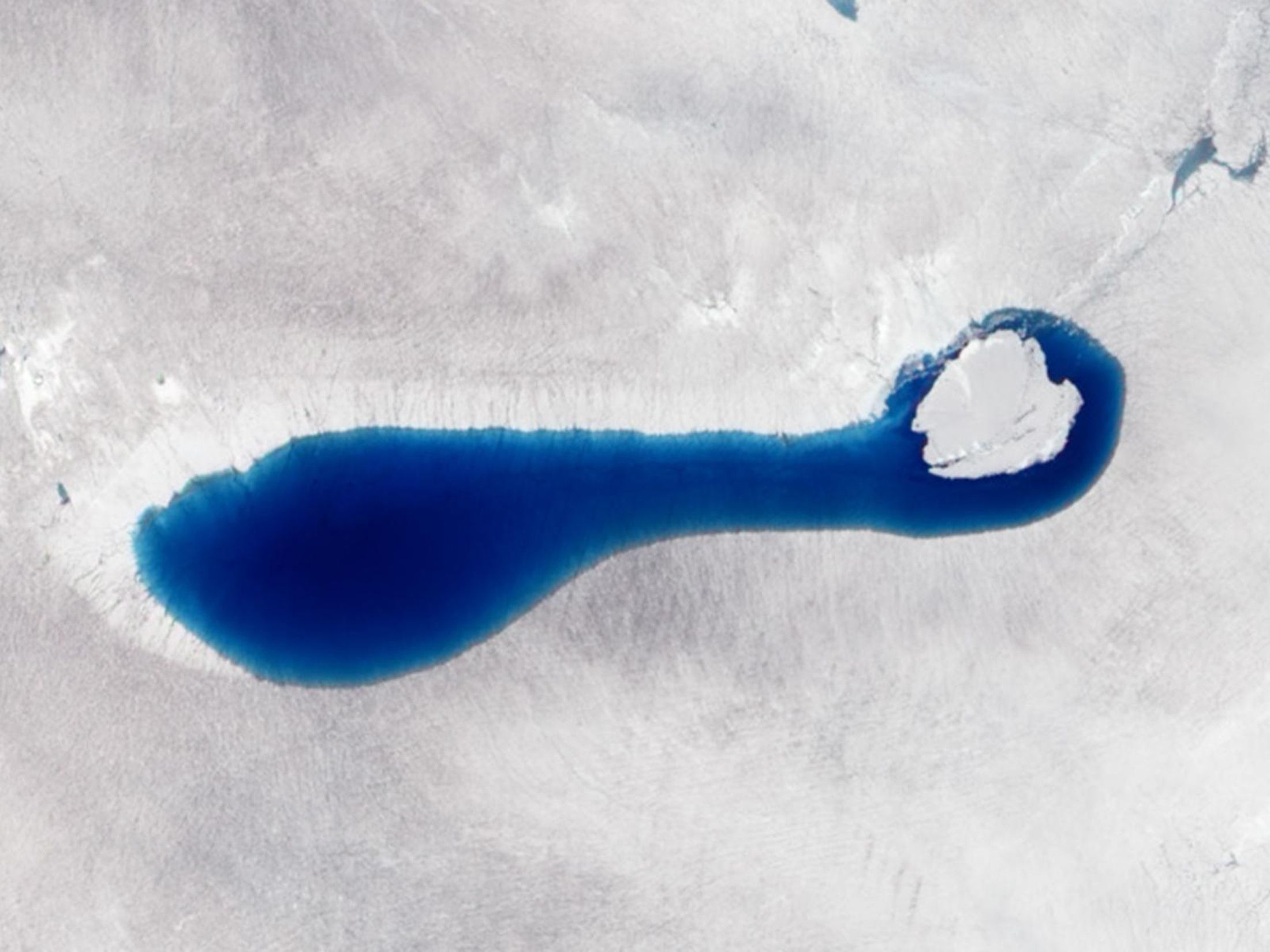
Not long ago, scientists discovered something worth celebrating: a sponge-like layer on the Greenland ice sheet that was capable of storing a significant volume of meltwater as it flowed off island's melting glaciers. This porous "firn" layer meant less meltwater was running into the open ocean, reducing some of Greenland's contribution to sea level rise. But that good news may have just run out.
A team of multinational scientists found that the vast amounts of water melting off Greenland's glaciers in recent seasons have inundated this spongy layer in places, filling it up beyond what it could absorb. Solid icecaps have now formed over much of the firn at certain elevations, making it impermeable to additional meltwater. That new meltwater has nowhere to go but off the ice sheet and into the ocean, once again contributing to sea level rise.
In a paper published Monday in the journal Nature Climate Change, researchers write that recent atmospheric warming might have pushed the firn over the edge. "Basically, our research shows that the firn reacts fast to a changing climate. Its ability to limit mass loss of the ice sheet by retaining meltwater could be smaller than previously assumed," Horst Machguth, a researcher at the Geological Survey of Denmark and Greenland and lead author of the study, said in a statement.
The Greenland Ice Sheet was in terrible shape last season. For the first time since 2012 (when an " exceptional " rate of melt astonished researchers), melting occurred on more than 50 percent of the sheet, and the melt season lasted 30 to 40 days longer than average, according to the National Oceanic and Atmospheric Administration's (NOAA) latest "report card" on the region, published in December 2015.
"If the Greenland Ice Sheet were to melt away completely, ocean level would rise roughly 23 feet," the NOAA noted in a press release. "So scientists have good reason to watch Greenland melt closely."
Uncommon Knowledge
Newsweek is committed to challenging conventional wisdom and finding connections in the search for common ground.
Newsweek is committed to challenging conventional wisdom and finding connections in the search for common ground.
About the writer
Zoë is a senior writer at Newsweek. She covers science, the environment, and human health. She has written for a ... Read more
To read how Newsweek uses AI as a newsroom tool, Click here.








